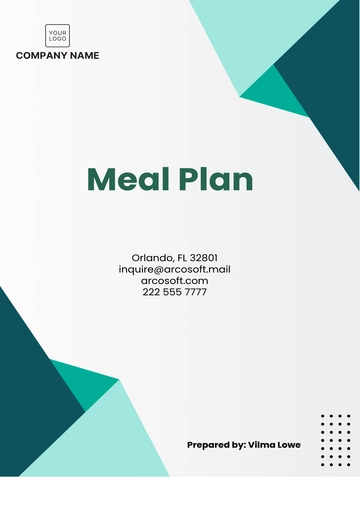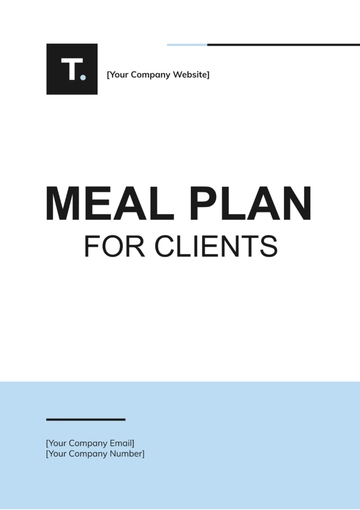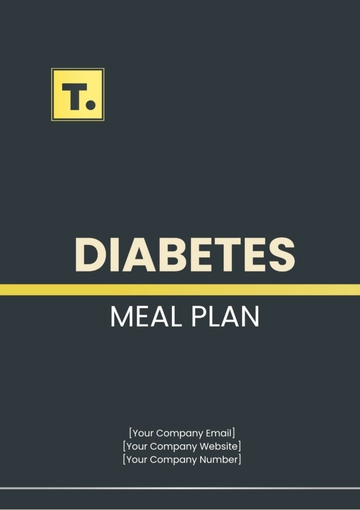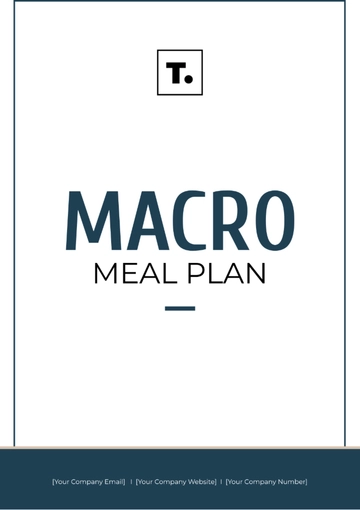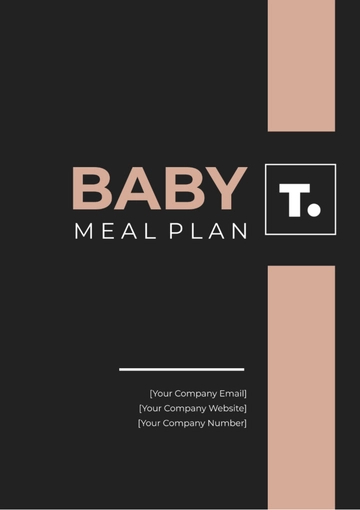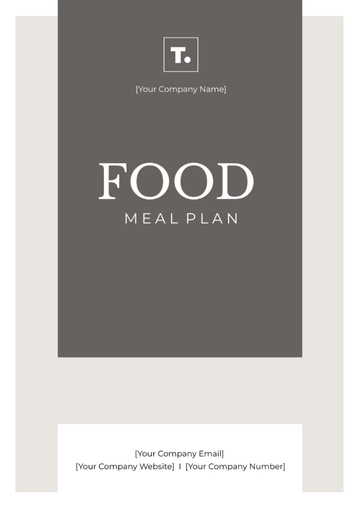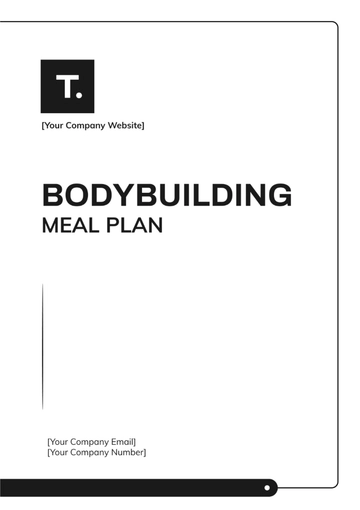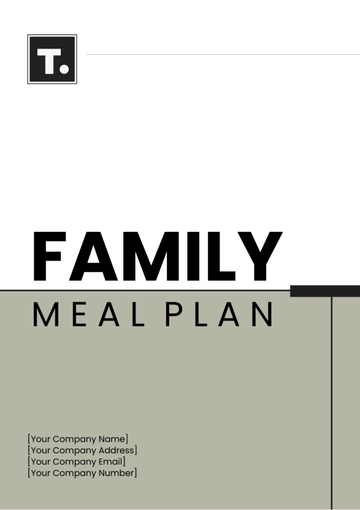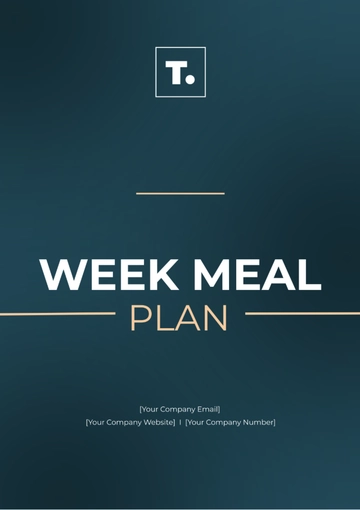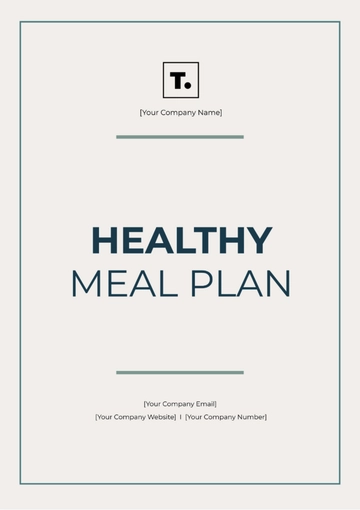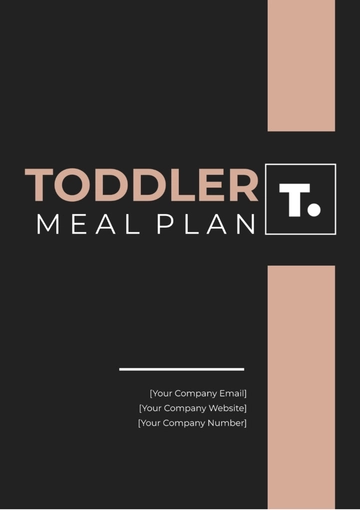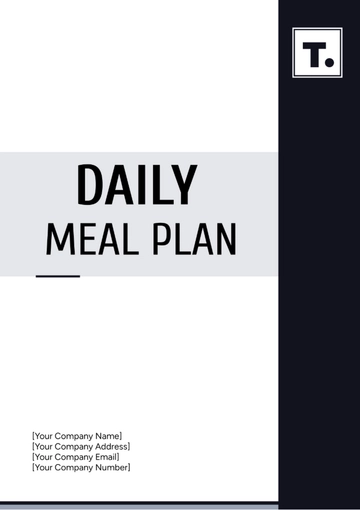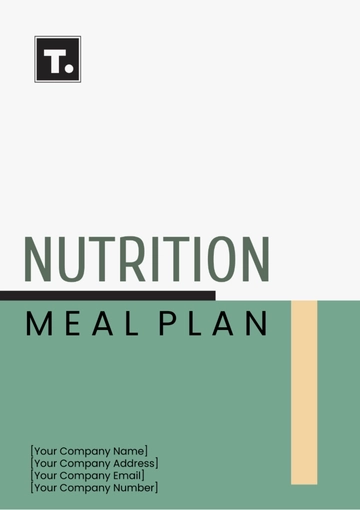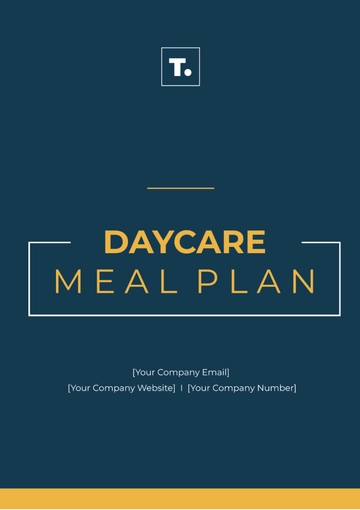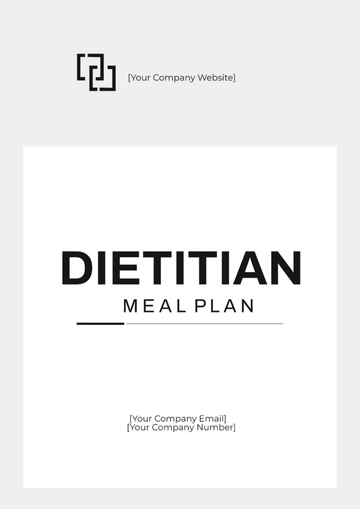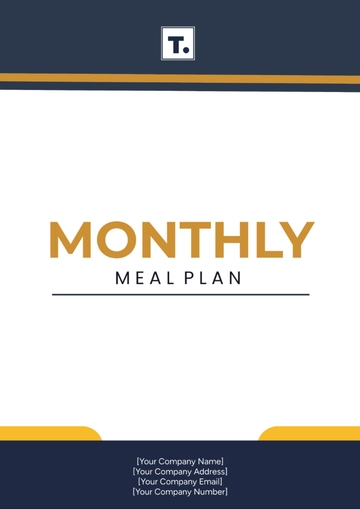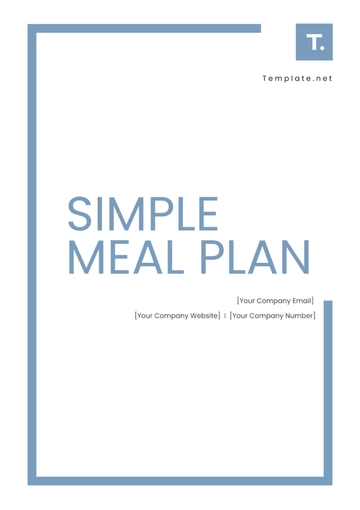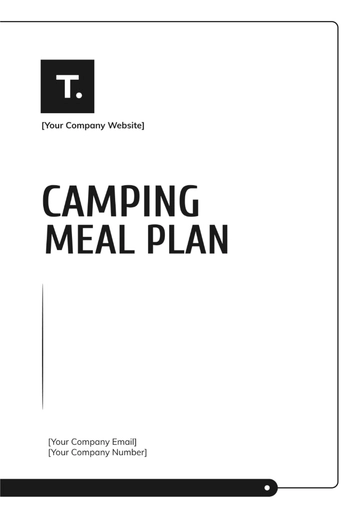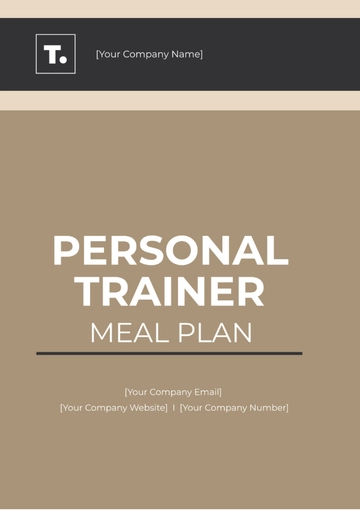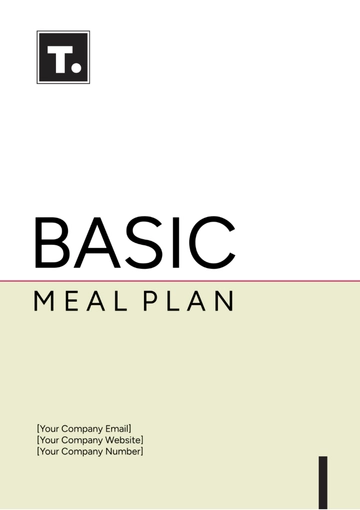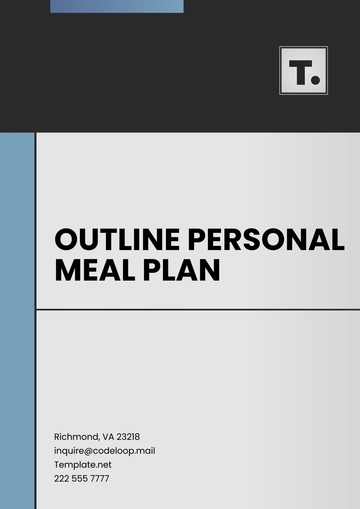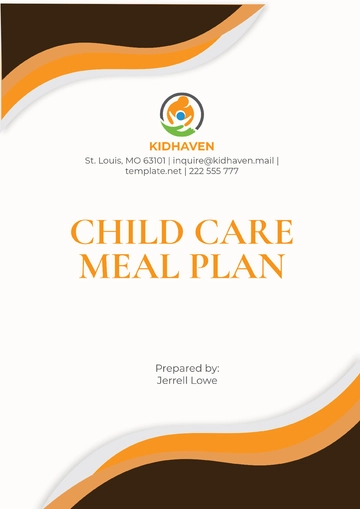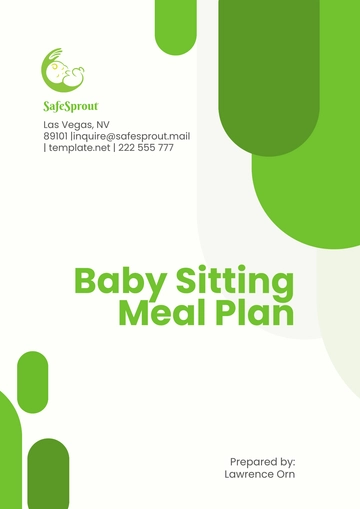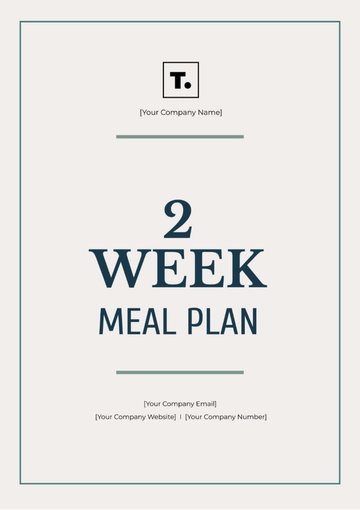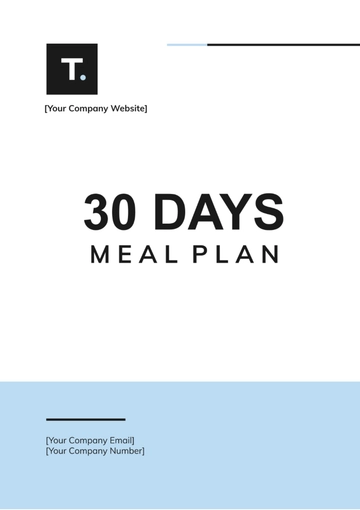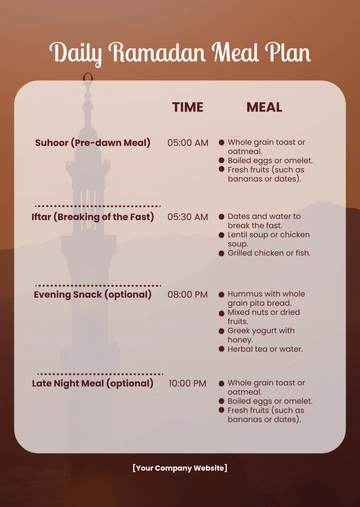Free Child Care Meal Plan
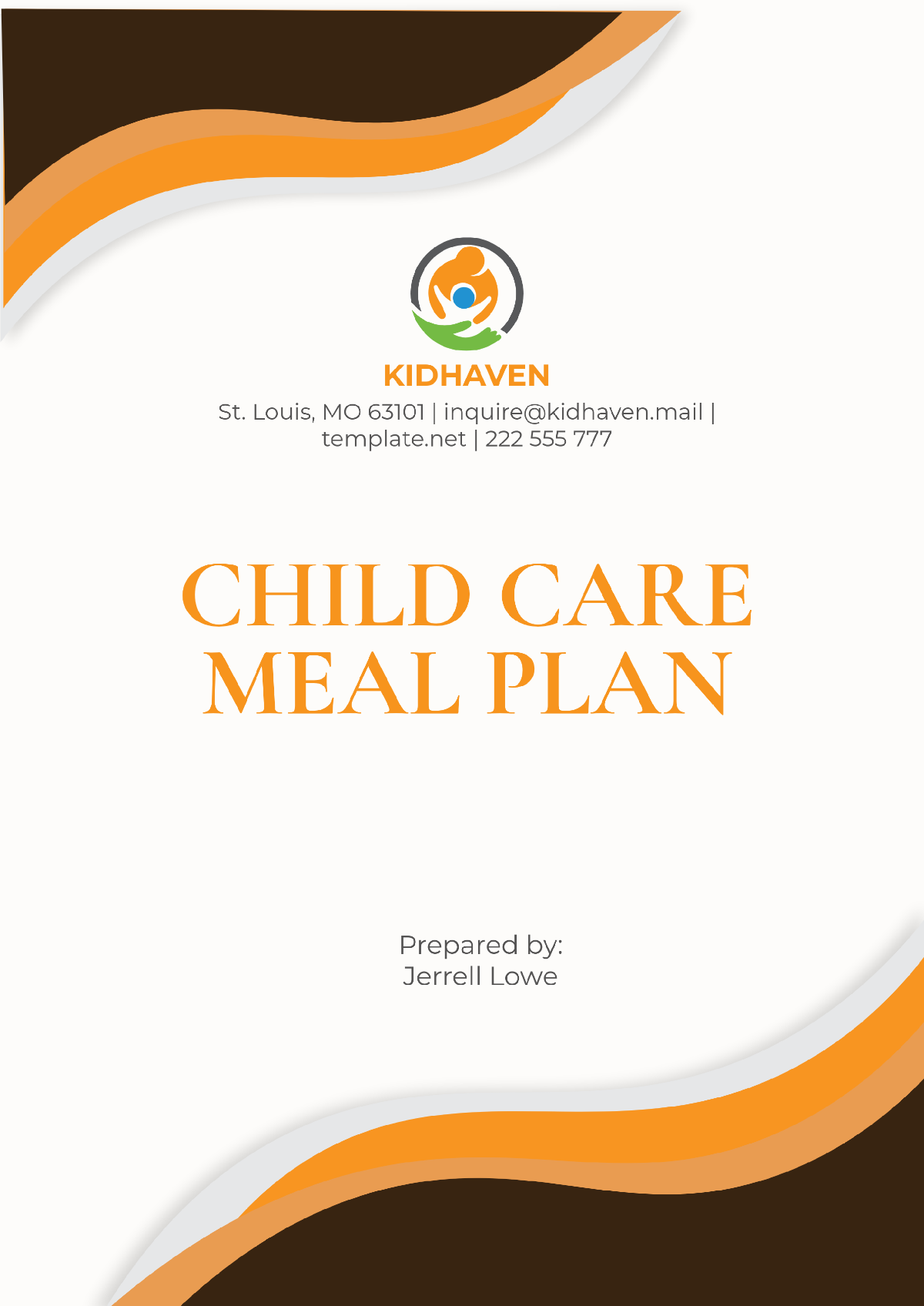
I. Introduction to the Meal Plan
A. Purpose of the Meal Plan
The purpose of this Child Care Meal Plan is to ensure that all children enrolled at [Your Company Name] receive nutritious, balanced meals throughout the day. This plan provides an outline of the meals offered, ensuring they meet the specific nutritional needs of each age group. By providing healthy meals, we aim to support children's physical and cognitive development and promote healthy eating habits from an early age.
B. Importance of Nutrition for Children
Proper nutrition is critical in the early years of a child's life, influencing their growth, energy levels, and ability to learn. Well-balanced meals can improve focus, behavior, and overall health, reducing the risk of chronic diseases in the future. Our meal plan supports these goals by offering a variety of foods that meet the essential nutrient requirements for all age groups.
C. Overview of Dietary Guidelines and Regulations
The meals provided in our program align with the latest government nutrition guidelines, including the USDA Child and Adult Care Food Program (CACFP) standards and global recommendations. We comply with local and federal regulations, including those related to food safety and portion sizes. All meals adhere to guidelines that limit added sugars, sodium, and ensure a balanced intake of proteins, fruits, vegetables, and grains.
D. Goals and Objectives of the Plan
Our meal plan aims to foster good eating habits, improve health outcomes, and create a positive mealtime environment. By introducing children to a diverse array of foods, we hope to develop their tastes and encourage them to enjoy healthy meals. Additionally, we strive to accommodate any special dietary needs, allergies, or preferences to ensure that all children are included and have access to nutritious food.
II. Nutritional Guidelines
A. Age-Appropriate Nutritional Needs
Each age group has different nutritional needs, which are reflected in our meal plan.
Infants (6 months - 1 year) | Breast milk or formula remains the primary source of nutrition, with solid foods like pureed fruits and vegetables gradually introduced. |
Toddlers (1 - 3 years) | Meals will be rich in protein and healthy fats, with smaller portions of grains, fruits, and vegetables to encourage self-feeding. |
Preschoolers (3 - 5 years) | A variety of foods, including proteins, whole grains, and vegetables, will be offered, with an emphasis on fun, interactive meals to encourage exploration. |
School-Aged Children (5 - 12 years) | The meals will be balanced with appropriate portions of each food group to sustain energy throughout the day and improve concentration. |
B. Key Food Groups
Meals at [Your Company Name] will include the following food groups to ensure a balanced diet:
Protein | Lean meats, beans, lentils, tofu, eggs, and dairy. |
Vegetables and Fruits | A wide variety of fresh, frozen, or canned options, including leafy greens, carrots, berries, apples, and oranges. |
Grains | Whole grains such as brown rice, whole wheat bread, quinoa, and oats. |
Dairy | Milk, yogurt, cheese, and non-dairy alternatives like almond milk. |
Healthy Fats | Avocados, olive oil, nuts, and seeds. |
C. Portion Sizes and Meal Frequency
Each child will receive meals based on their age, activity level, and appetite.
Breakfast | 1 serving of grains, 1 serving of fruit or vegetables, and 1 serving of protein. |
Lunch | 1 serving of protein, 1 serving of vegetables, 1 serving of grains, and 1 serving of dairy. |
Snack | Small portions of fruit, vegetable sticks, crackers, or a dairy item. |
Dinner (if applicable) | Similar structure to lunch, with varying proteins and vegetables to keep meals interesting and nutritious. |
III. Special Dietary Needs
A. Food Allergies and Intolerances
We accommodate a wide range of food allergies, such as nuts, gluten, dairy, and eggs, by offering alternatives where necessary. Substitutions will be made based on individual needs, and careful labeling of all ingredients will be provided to ensure safety. Parents are encouraged to provide any relevant dietary restrictions at enrollment to allow us to make adjustments in advance.
B. Vegetarian/Vegan Diets
Vegetarian and vegan meals will be available for children who require them, ensuring they receive adequate protein and iron. Plant-based meals will include tofu, lentils, chickpeas, and fortified dairy alternatives to meet nutritional needs. Our menu rotates to offer a variety of plant-based options, including vegetable stir-fries, bean tacos, and quinoa bowls.
C. Cultural and Religious Dietary Considerations
We respect the cultural and religious dietary preferences of our families. Meals can be customized to meet specific needs, such as kosher, halal, or plant-based diets. Special meal requests should be communicated to our staff, and we will ensure they are incorporated into the meal planning process.
D. Medical or Health-Related Restrictions
Children with medical conditions such as diabetes or low-sodium needs will have their meals adjusted accordingly. Our registered dietitian works with families and healthcare providers to create a suitable meal plan that supports the child's health condition. These tailored meals ensure that all children receive the right nutrients without compromising their health requirements.
IV. Meal Planning Structure
A. Meal Types and Frequency
Our meal plan is designed to offer three main meals and two snacks per day, depending on the child’s schedule.
Breakfast | Oatmeal with fruit, scrambled eggs with spinach, or whole wheat toast with avocado. |
Lunch | Grilled chicken with roasted vegetables and quinoa, or a veggie and cheese wrap. |
Snack | Fresh fruit, crackers with cheese, or veggie sticks with hummus. |
Dinner (For full-day programs) | Baked salmon with sweet potatoes and broccoli, or spaghetti with marinara sauce. |
B. Meal Variety and Rotation
We implement a weekly meal rotation to ensure variety and prevent meal fatigue. Each week will feature new recipes, with a focus on seasonal ingredients to provide the freshest produce available. Sample meals include stir-fry vegetables with rice, turkey meatballs, and homemade vegetable soup.
C. Hydration Guidelines
All children are encouraged to drink water throughout the day. Milk will be offered at breakfast and lunch, with an option for water or 100% fruit juice during snack times. Parents can also provide their child with a water bottle to ensure proper hydration during outdoor activities.
V. Food Safety and Preparation
A. Safe Food Handling Practices
Our kitchen follows strict hygiene standards, with all kitchen staff trained in food safety practices. Proper handwashing, surface cleaning, and the use of gloves are mandatory when handling food. All meals are prepared following temperature guidelines to ensure safety, with hot foods kept at safe temperatures and cold foods stored appropriately.
B. Meal Preparation Guidelines
Meals are prepared daily by our trained kitchen staff, with careful attention to portion sizes, cooking methods, and safety. Ingredients are sourced from certified vendors to ensure quality and safety. All meals are freshly made, with leftovers refrigerated or discarded at the end of the day to maintain food safety.
C. Safe Feeding Practices
Age-appropriate utensils and feeding techniques will be used for younger children to promote safe eating habits. Infants will be fed pureed foods with care to avoid choking hazards. Children will be supervised during meals to ensure they are eating safely and comfortably.
VI. Monitoring and Evaluation
A. Tracking Nutritional Compliance
We track the nutritional value of each meal using a digital food log that is reviewed monthly. Our nutritionist regularly evaluates the meals to ensure they meet the necessary caloric and nutrient requirements. Parents can request to see these reports for transparency and peace of mind.
B. Soliciting Feedback from Parents and Children
We collect feedback from parents through surveys to understand their child's preferences, allergies, and any additional concerns. Children’s preferences are also noted, and meals are adjusted accordingly. Regular family meetings will be held to discuss any necessary changes or improvements to the meal plan.
C. Regular Meal Plan Reviews and Adjustments
The meal plan is reviewed bi-annually to ensure it remains in line with updated nutrition guidelines. Adjustments will be made based on seasonal changes in food availability, regulatory updates, and feedback from families. New meal ideas will be tested periodically, with input from both staff and parents.
VII. Conclusion
The goal of this Child Care Meal Plan is to provide a healthy, safe, and enjoyable dining experience for every child at [Your Company Name]. Through thoughtful meal planning and attention to dietary needs, we aim to help children develop positive eating habits that will last a lifetime. We remain committed to continuously improving and adjusting our meal plan to best serve the children in our care.
- 100% Customizable, free editor
- Access 1 Million+ Templates, photo’s & graphics
- Download or share as a template
- Click and replace photos, graphics, text, backgrounds
- Resize, crop, AI write & more
- Access advanced editor
Keep your child care meal planning organized and efficient with the customizable Child Care Meal Plan Template from Template.net. Fully editable and designed for ease of use, this template allows you to tailor meal schedules, nutritional guidelines, and special dietary needs. With the AI Editor Tool, you can quickly adjust the plan to suit your unique requirements.
